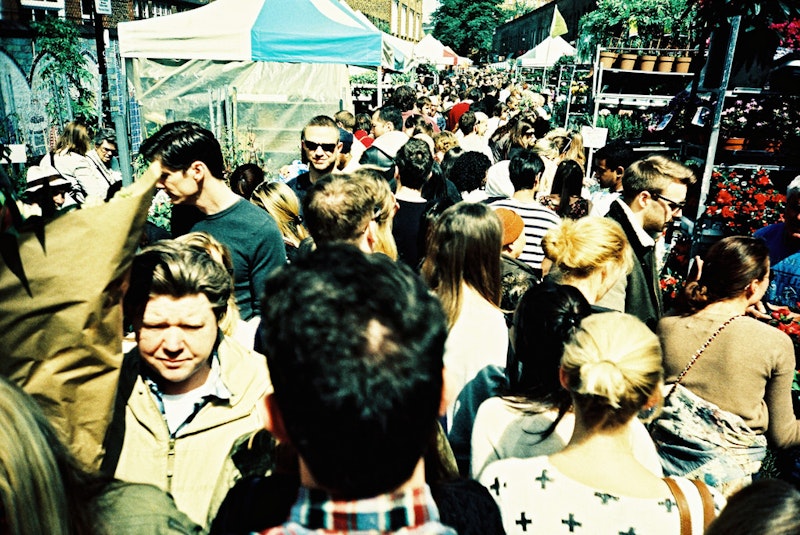Grotesque displays of aimless anger in violent protests. “Twitter wars” of ad hominem attacks and blatant lies. Arguments in the virtual public square that are not about ideas but primitive emotional responses. All of these (and many more) have one thing in common: dehumanization of the other person.
Because the current iteration of society’s collective consciousness or Weltanschauung is based on identity politics and superficial categories, we’re seeing one another as disembodied constructs and abstractions. The very idea of personhood is reduced to nothing. In fact, the “group think” does not even acknowledge that personhood exists.
There are many ways to dehumanize another person. I saw the most gruesome expression of it through the Bosnian war of the 1990s that I survived as a child. Whatever the examples of dehumanization may be, the general basis is composed of two aspects: self-inflicted dehumanization and dehumanization directed toward the other person.
In the first instance, an individual has lost the capacity to stand on his own, and has derived the meaning of existence and personal identity from the group or the collective. He has lived an unexamined life, and has based the entire reason for being on the directives from the group.
This is very much different from being part of a community, in which an individual brings the wholeness of his personhood, and by the virtue of his being, he contributes to the community flourishing. He not only humanizes himself because he’s reflected upon his life but he also humanizes the entire community because he brings the entirety of his humanity into its fold.
In the second instance, we dehumanize others. This, in many ways, is easier to recognize and point out than the self-inflicted denial of one’s being. Here, the person that’s standing before us is a mere concept, which is most likely based on false or incomplete information that engenders deep hatred. They don’t have a name, history, memories, dreams, traumas, or joys. They’re not a father, mother, son, daughter, brother, sister, husband, wife, or friend. In other words, they have no belonging into their own family or the greater human family.
This attitude sows more division among people. The more we fragment society, the more we fragment our individual constitution. My grandmother once said to me that when we hate others, we stain our souls. I believe this to be true. When we dehumanize others, we inevitably dehumanize ourselves.
Where do we go from here? How do we see the humanity of the other person? How do we avoid falling into the trap of duplicating dehumanization? This is a perennial human question. But so is the answer. We must recognize the inherent dignity of every human by standing in a face-to-face encounter with the fellow man.
The first step is to affirm that we’re not abstractions, but embodied beings. We eat, drink, sleep, procreate, give birth, feel both physical and emotional pain and suffering, and we work and toil. In other words, we are real.
Second, each one of us possesses an interior life, which means we engage in self-reflection (implicitly or explicitly). We have memories and connections to a culture, religion, or language through which we are seeking means of expression.
Third, we belong in a community and not a collective. This is a crucial distinction because a community recognizes the singularity of human life, whereas a collective suppresses the individuality and uniqueness of each person. Our communities can be both religious and secular, and we belong to individual families as well as a larger human family.
Finally, and perhaps most importantly, we are made in God’s image. Leon Kass, a premier philosopher and bioethicist wrote: “The dignity of being human, rooted in the dignity of life itself and flourishing in a manner seemingly issuing only in human pride, completes itself and stands tallest when we bow our heads and lift our hearts in recognition of powers greater than our own. The fullest dignity of the god-like animal is realized in its acknowledgement and celebration of the divine.”

